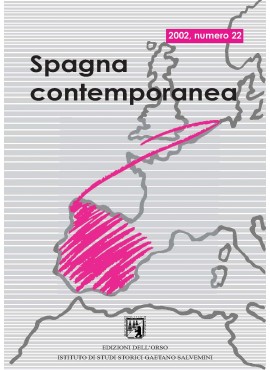Democrazia municipale e politiche urbanistiche in Spagna, 1975-1985
Abstract
Democrazia municipale e politiche urbanistiche in Spagna, 1975-1985
The essay, after having traced Spain’s urban system evolution during Francoism and the changes in the town-planning thought, studies how the democratic town-authorities met with the problems of urban decay inherited from the dictatorship period. Employing the rich contemporary debate on urban problems, that involved town-planners, architects, politicians and district associations, and reconstructing the origin of the town plans given to many Spanish towns in the beginning of the Eighties, the Author sketches the features of a town-planning of the transition seen as democratic re-possessing of the town-planning tools and as citizens’ sharing to the political decision’s formulation, emphasizing the municipal sphere’s centrality in Spain’s newly found democracy. The article especially deals on Madrid and Barcelona and points out how, not- withstanding some conceptual differences (prevailing of the town-plan tool in Madrid, prevailing of the single architectural project in Barcelona) the context of economic crisis gave to this first phase of Spanish democratic town-planning a marked austerity accent, of recovery and reconstruction of decayed urban tissues. Deferring conclusions to a still in progress research, the text closes stressing how in the mid-Eighties a different economic and political situation radically altered Spanish democratic town-planning’s characters.
Downloads
Published
Issue
Section
License
Copyright (c) 2002 Istituto di studi storici Gaetano Salvemini, Torino

This work is licensed under a Creative Commons Attribution-NonCommercial-NoDerivatives 4.0 International License.



